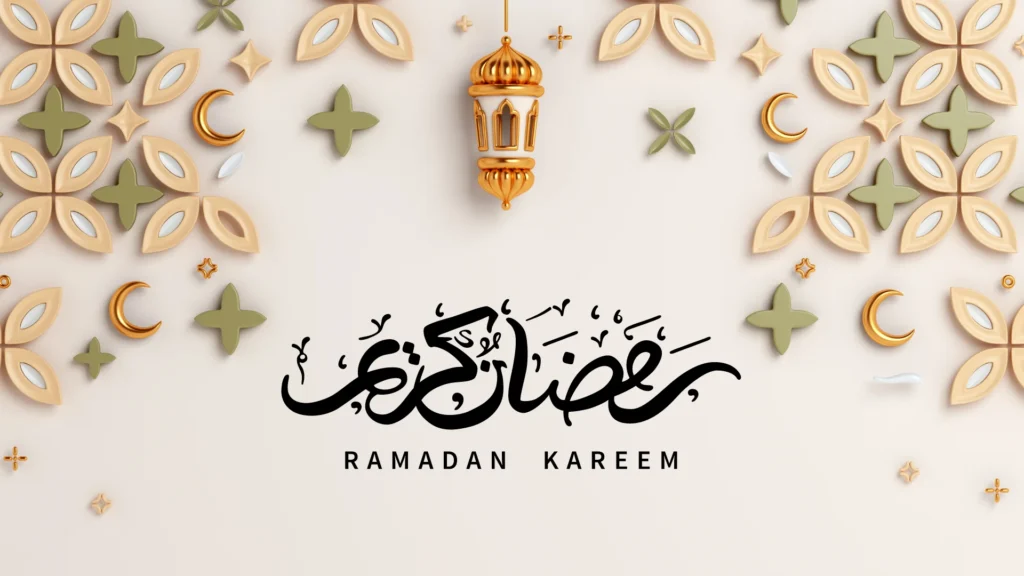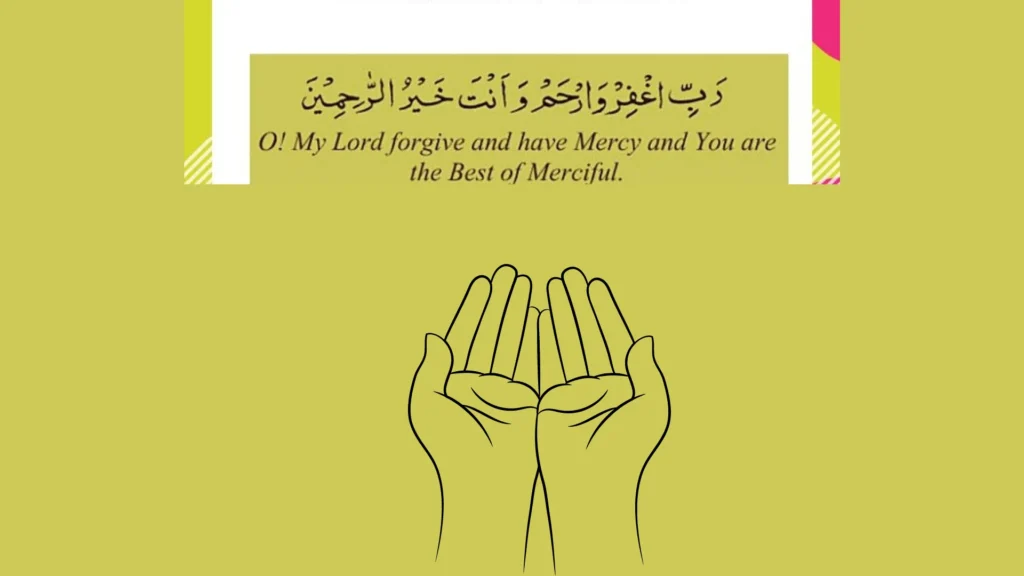Ramadan: A Journey of Faith and Reflection

By Hub Al Quran, Online Quran Academy. 15 March 2024
Table of Contents
Assalamu Alaikum and Ramadan Mubarak! As we enter into the sacred month of Ramadan, it’s a time filled with blessings and opportunities for spiritual growth. For those who may be new to this tradition, Ramadan is a special time in the Islamic calendar marked by fasting from dawn until sunset, along with increased prayers and acts of charity. It’s not merely about abstaining from food and drink; instead, it’s a period of self-discipline and introspection where Muslims strive to strengthen their connection with Allah and improve their character.
During Ramadan, Muslims worldwide come together in a beautiful display of unity and solidarity. It’s a time when families gather for iftar, the evening meal to break the fast, sharing not only food but also stories and laughter. Communities organize special prayers and events, fostering a sense of belonging and support among its members. Through fasting, individuals are reminded of the importance of empathy and compassion as they experience hunger and thirst, gaining a deeper understanding of the struggles faced by those less fortunate. Overall, Ramadan is a time of immense spiritual significance, where Muslims seek forgiveness, guidance, and blessings, drawing closer to their faith and one another.
Personal Reflection: My Experience with Ramadan
Ramadan is a cherished time for me, resonating deeply with my spiritual journey and personal growth. The approach of this holy month fills me with a profound sense of anticipation and reverence as I eagerly anticipate the opportunity it brings for introspection and connection with Allah. It’s a time when I reflect on my actions and intentions, seeking to align them more closely with the teachings of Islam.
More than just refraining from physical nourishment during daylight hours, Ramadan catalyzes inner transformation. It prompts me to cultivate virtues such as gratitude, compassion, and mindfulness in my interactions with others and in my relationship with myself. Through the discipline of fasting and increased devotion to prayer, I find myself drawn closer to Allah, feeling His presence more keenly in my life. Ramadan, therefore, becomes a time of spiritual renewal and rejuvenation, allowing me to deepen my faith and strengthen my connection to the divine.
The Importance of Ramadan in the Islamic Faith
In the Islamic faith, Ramadan is the most special month. It’s when Muslims remember when Allah first revealed the Quran to Prophet Muhammad (صلى الله عليه وسلم). During Ramadan, Muslims focus a lot on praying, fasting, and helping others. It’s a time for asking Allah for forgiveness and getting closer to Him.
Ramadan teaches important things like controlling oneself, feeling for others who are not as lucky, and being together with your community. When Muslims fast from sunrise to sunset, it helps them learn patience and discipline. Also, it makes them think about people who don’t have enough food to eat. Ramadan brings people closer as they share meals and prayers. Overall, Ramadan is a special time for Muslims to grow spiritually and become better people.
Fasting and Its Practices During Ramadan
During Ramadan, Muslims observe fasting from sunrise to sunset, refraining from eating, drinking, smoking, and engaging in other physical needs during daylight hours. This practice of abstaining fosters self-discipline and a heightened sense of empathy for those who may be less fortunate and unable to access necessities. It serves as a reminder of the blessings in our lives and encourages gratitude and appreciation for them. For individuals fasting for the first time, it’s crucial to prioritize hydration and maintain a balanced diet during the non-fasting hours to ensure their well-being. Seeking support from family, friends, and the wider community can also provide encouragement and guidance throughout the fasting period, fostering a sense of unity and solidarity among participants.
Spiritual Reflection: Deepening Our Connection in Ramadan
Ramadan unfolds as a sacred window of opportunity for people to set off on a path of reflection and spiritual renewal. This month-long period amplifies our focus on acts of devotion, including prolonged prayers, heartfelt recitations of the Quran, and engaging in charitable deeds. Through these practices, our connection with Allah is fortified, and our faith is nurtured and enriched. Personally, Ramadan serves as a pivotal time for profound spiritual growth, where each day presents a chance to delve deeper into the essence of our beliefs and strengthen our relationship with the Divine. Immersed in the beauty of the Quran’s teachings and guided by the spirit of compassion and forgiveness, I find myself drawn closer to Allah’s presence, seeking solace and enlightenment in moments of reflection and prayer.
Moreover, Ramadan offers a transformative experience where the essence of Islam’s teachings comes alive in our daily lives. It’s a time to embody the virtues of patience, empathy, and gratitude as we navigate the challenges of fasting and strive to make meaningful contributions to our communities. Through acts of selflessness and generosity, we not only uplift those in need but also reaffirm our commitment to living in accordance with the values espoused by our faith. As I immerse myself in the spiritual practices of Ramadan, I am reminded of the profound interconnectedness of all beings and the boundless mercy and compassion of Allah, inspiring me to strive for greater spiritual enlightenment and personal growth.
Community and Togetherness During Ramadan
Ramadan shines brightly with the warmth of community and togetherness, weaving threads of connection and camaraderie among individuals across the globe. Whether it’s the joyous gatherings for iftar meals with loved ones or the collective prayers held in mosques, this sacred month inspires a profound sense of unity and solidarity. As people come together to break their fasts and engage in acts of worship, they share not only food and prayers but also laughter, stories, and moments of deep reflection. These shared experiences serve as a powerful reminder of the inherent interconnectedness of humanity, transcending differences in culture, language, and geography. In the spirit of brotherhood and sisterhood, Ramadan becomes a time when hearts are knit together in bonds of friendship and compassion, fostering a sense of belonging and support within the community.
Challenges and Rewards of Observing Ramadan
Observing Ramadan comes with its share of challenges, both physical and mental. The long hours of fasting, especially during hot days, can test one’s endurance and resolve. Additionally, managing daily responsibilities while fasting requires extra effort and discipline. However, the rewards of Ramadan are abundant and profound. The sense of accomplishment that accompanies completing each day of fasting is deeply fulfilling. Moreover, the spiritual growth and closeness to Allah that come from engaging in increased acts of devotion, such as prayer, Quranic recitation, and acts of charity, are invaluable. Through perseverance and reliance on Allah, individuals navigate these challenges and emerge from Ramadan with strengthened faith, heightened resilience, and a deep sense of spiritual fulfilment.
Exploring the 1st Ashra of Ramadan: Reflection and Renewal
The month of Ramadan is divided into three parts, each known as an “Ashra,” symbolizing different stages of spiritual reflection and renewal. The first Ashra, spanning the initial ten days of Ramadan, is a time of seeking mercy and forgiveness from Allah. It is a period of introspection and repentance, where Muslims reflect on their past deeds and seek purification of the soul.
During the first Ashra, believers focus on cultivating humility and seeking Allah’s forgiveness for any shortcomings or mistakes. It is a time to reconcile with oneself and strive for spiritual renewal. The Prophet Muhammad (صلى الله عليه وسلم) highlighted the importance of pursuing forgiveness during this period, reminding us of the boundless mercy of Allah.
Let us use this time to examine our deeds, ask for pardon for our transgressions, and reaffirm our dedication to spiritual development as we approach the first Ashra of Ramadan. May Allah’s mercy and forgiveness shower upon us during these blessed days, guiding us on the path of righteousness and enlightenment.
The first Ashra dua is a supplication made during the first ten days of Ramadan, known as the “Ashra of Mercy.” These ten days are believed to be a time of seeking Allah’s mercy and forgiveness. The dua (prayer) for the first Ashra is as follows:

This dua reflects the essence of seeking forgiveness from Allah during the first ten days of Ramadan, emphasizing Allah’s mercy and willingness to forgive His servants. It acknowledges Allah’s attribute of forgiveness and seeks His pardon for any shortcomings or sins committed. Muslims often recite this dua frequently during the first ten days of Ramadan as part of their spiritual devotion and seeking of Allah’s mercy and forgiveness.
Conclusion: Wishing You a Blessed Ramadan
As we embark on this sacred journey of Ramadan, let us do so with open hearts and minds, embracing the opportunity for spiritual growth and reflection. May we approach this month with humility and sincerity, seeking Allah’s mercy and guidance in all our endeavours? Let us remember the significance of compassion, gratitude, and generosity, striving to embody these virtues in our interactions with others. As we fast, pray, and engage in acts of charity, may we deepen our connection with Allah and experience the true essence of Ramadan. As we come together in devotion and thankfulness at this beautiful season, I hope you and your loved ones have a blessed Ramadan.
Call to Action: Share Your Ramadan Experiences
I warmly invite you to share your own experiences or reflections on Ramadan in the comments section below. How does your community observe Ramadan? What rituals or traditions hold particular significance for you during this month? What valuable lessons have you learned from fasting and engaging in acts of worship? By sharing our diverse experiences and insights, we can enrich one another’s understanding and appreciation of Ramadan’s profound significance. Let’s continue this enlightening conversation and foster a sense of unity and solidarity within our global community. Remember to explore more content on our website and connect with us on social media for updates on upcoming events and articles. Ramadan Mubarak!
FAQs
In the Islamic calendar, the blessed month of Ramadan is observed by Muslims who fast from sunrise until sunset, engage in increased prayers, and perform acts of charity. It’s a time for spiritual growth and reflection.
Muslims refrain from eating, drinking, smoking, and engaging in other physical needs during daylight hours. They focus on prayer, fasting, and helping others.
Ramadan is significant because it’s when Muslims remember when Allah first revealed the Quran to Prophet Muhammad (peace be upon him). It’s a time for seeking forgiveness, getting closer to Allah, and practising self-discipline.
During Ramadan, fasting entails avoiding food and liquids from sunrise to sunset. It helps Muslims learn patience, discipline, and empathy for those less fortunate.
Observing Ramadan can be challenging due to long fasting hours and managing daily responsibilities. However, the rewards include a sense of accomplishment, spiritual growth, and closeness to Allah.
Ramadan is divided into three parts, which are called Ashras. The first Ashra focuses on seeking mercy and forgiveness from Allah. It’s a time for reflection, repentance, and spiritual renewal.
You can share your Ramadan experiences or reflections in the comments section of our blog. We encourage sharing rituals, traditions, and valuable lessons learned from fasting and worship during Ramadan. Let’s foster unity and solidarity within our global community.
Read this Blog for Weight Loss in Ramadan: https://sweatsculptshine.com/weight-loss-in-ramadan/


